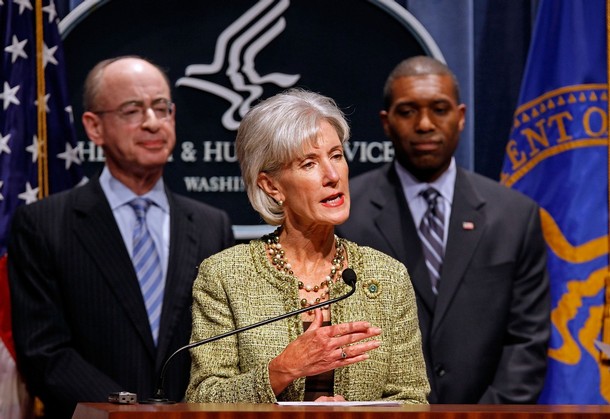HHS Turning up the HEAT on Healthcare Fraud Charges

Since the health care reform debate began almost two years ago, the Obama Administration has identified fighting fraud committed against public health care programs as a top priority. Both the Recovery Act and Affordable Care Act include significant provisions to fight health care fraud. Among many other changes, the ACA amended the False Claims Act’s public disclosure provision and strengthened the provisions of the federal health care Anti-Kickback Statute.
One of the main reasons for this is because the Obama Administration largely asserted during the debate that significant reductions in health care fraud and abuse could help pay for part of the health care reform legislation.
These goals were further expressed in President Obama’s FY 2011 budget, which included $561 million in discretionary resources to the Department of Health and Human Services (HHS), an increase of $250 million. HHS Secretary Kathleen Sebelius acknowledged that this increase would strengthen the Medicare and Medicaid program integrity activities, with a particular emphasis on fighting health care fraud in the field, increasing Medicaid audits, and strengthening program oversight while reducing costs.
Such an investment against fraud and abuse claims to help save $9.9 billion over ten years. According to HHS, the additional funding will better equip the Federal government to minimize inappropriate payments, pinpoint potential weaknesses in program integrity oversight, target emerging fraud schemes by provider and type of service, and establish safeguards to correct programmatic vulnerabilities.
Additionally, the HHS budget will install a set of new program integrity proposals that will give HHS the necessary tools to fight fraud by enhancing provider enrollment scrutiny, increasing claims oversight, improving Medicare’s data analysis capabilities, and reducing over-utilization of Medicaid prescription drugs. These proposals will claim to save approximately $14.7 billion over 10 years.
Consequently, the Department of Justice (DOJ) has been busy trying to reach that goal, securing more than $3 billion in civil settlements and judgments in cases involving fraud against the government in the fiscal year ending Sept. 30, 2010. Announcing this accomplishment, Tony West, Assistant Attorney General for the Civil Division, announced in a press release that this total includes $2.5 billion in health care fraud recoveries—the largest in history—and represents the second largest annual recovery of civil fraud claims.
West also mentioned that the amounts recovered under the False Claims Act since January 2009 have eclipsed any previous two-year period with $5.4 billion in taxpayer dollars returned to federal programs and the Treasury. Of that total, $4.6 billion were under the False Claims Act from health care providers and others in the industry, a two-year health care fraud record. DOJ also secured 25 criminal convictions. Since 1986, when Congress substantially strengthened the civil False Claims Act, recoveries now total more than $27 billion.
The largest fiscal year 2010 False Claims Act recoveries came from the pharmaceutical and medical device industries, which accounted for $1.6 billion in settlements, including the $669 million from Pfizer Inc., $302 million from AstraZeneca, and $192.7 from Novartis Pharmaceutical Corporation. These numbers may appear to be deceptive however, as some have predicted that the era of big pharma settlements may be ending. For example, many companies such as Pfizer have entered into lengthy corporate integrity agreements that span over the next several years.
While it is certainly important for revenue purposes that DOJ continues to successfully prosecute wrongful acts of companies, the agreements these companies have entered into require more of an oversight role than investigative, to ensure compliance with the agreement. Without large settlements, the DOJ might not be able to sustain its ‘profitability’ of fraud collections. For example, without a large settlement like Pfizer’s, DOJ’s claims may not cover the $500 million plus the government put in. In other words, if the administration is to continue such efforts, they will first have to recover $500 million to break even.
Much of the success for recovering this money stems from the Department of Health and Human Services (HHS) creation of a new interagency task force, the Health Care Fraud Prevention and Enforcement Action Team (HEAT). On May 20, 2009, Attorney General Eric Holder and HHS Secretary Kathleen Sebelius created HEAT to increase coordination and optimize criminal and civil enforcement, which they argue results in higher quality health care at a more reasonable price. DOJ and HHS also assert that HEAT is used as a tool to protect the Medicare Trust Fund for seniors and the Medicaid program for the country’s neediest citizens.
West further acknowledged the role of HEAT by recognizing that Since January 2009, the Civil Division, together with the U.S. Attorneys’ offices, commenced more health care fraud investigations, secured larger fines and judgments, and recovered more taxpayer dollars lost to health care fraud than in any other two-year period.” Most of the cases resulting in recoveries were brought to the government by whistleblowers under the False Claims Act, the federal government’s primary weapon in the battle against fraud.
In 1986, Senator Charles Grassley and Representative Howard Berman led successful efforts in Congress to amend the False Claims Act to revise the statute’s qui tam (or whistleblower) provisions, which encourage whistleblowers to come forward with allegations of fraud. Since 1986, recoveries in qui tam cases have exceeded $18 billion, and relators (whistleblowers) have obtained more than $2.8 billion in awards. They were awarded $385 million in 2010.
Impact of Settlements
Ultimately, while the success of the DOJ is clear, how much this will continue down the road depends on a number of factors. Nevertheless, it is important that the DOJ and HHS continue to work with companies on solutions to prevent fraud, waste and abuse to reduce costs and improve efficiency in the health care system. While the recoveries may help to pay for some of the provisions in health care reform, it is more important that the companies maintain their trust and integrity with the public by adhering to their agreements and making a concerted effort to prevent fraud and abuse.
